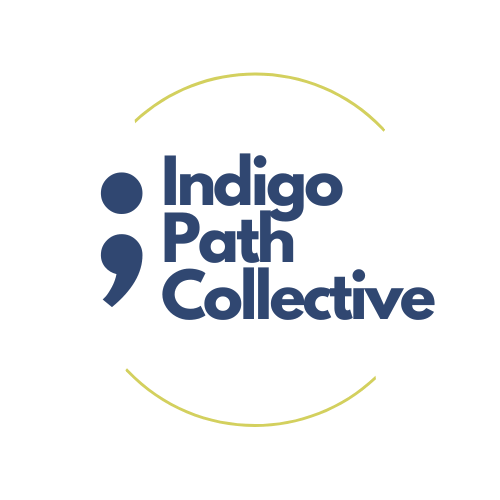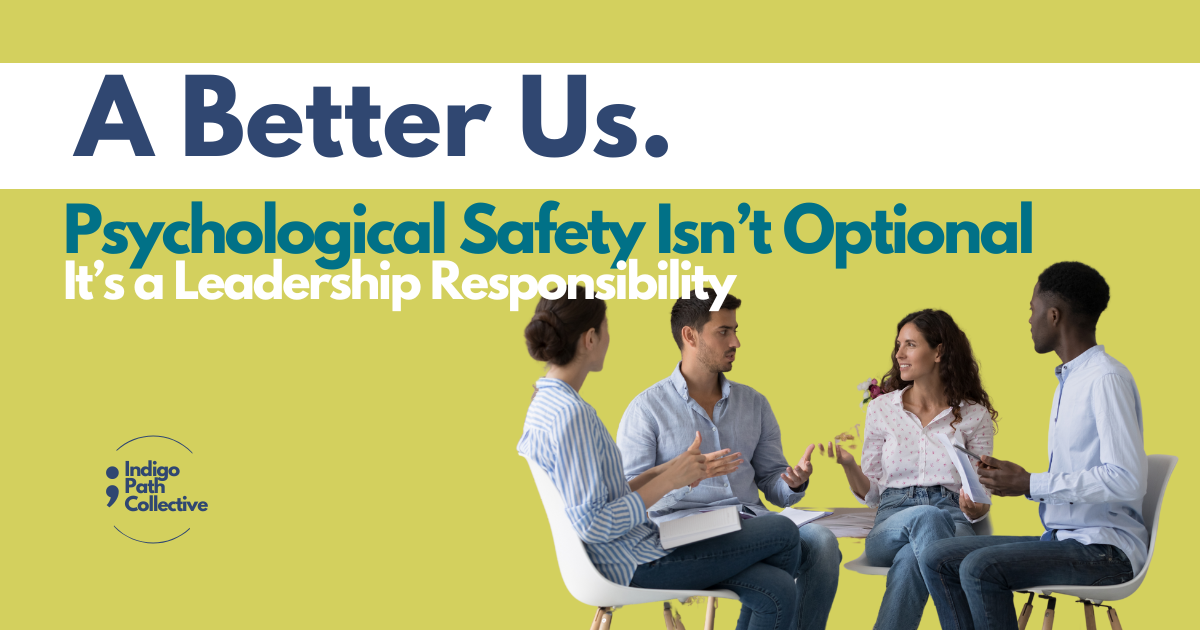
Psychological Safety Isn’t Optional: It’s a Leadership Responsibility
Psychological safety is not a soft skill. It is a leadership responsibility. This blog explores how trauma-informed care and Values-Aligned Functioning intersect to create cultures where people feel safe enough to be honest, show up fully, and stop performing just to survive.
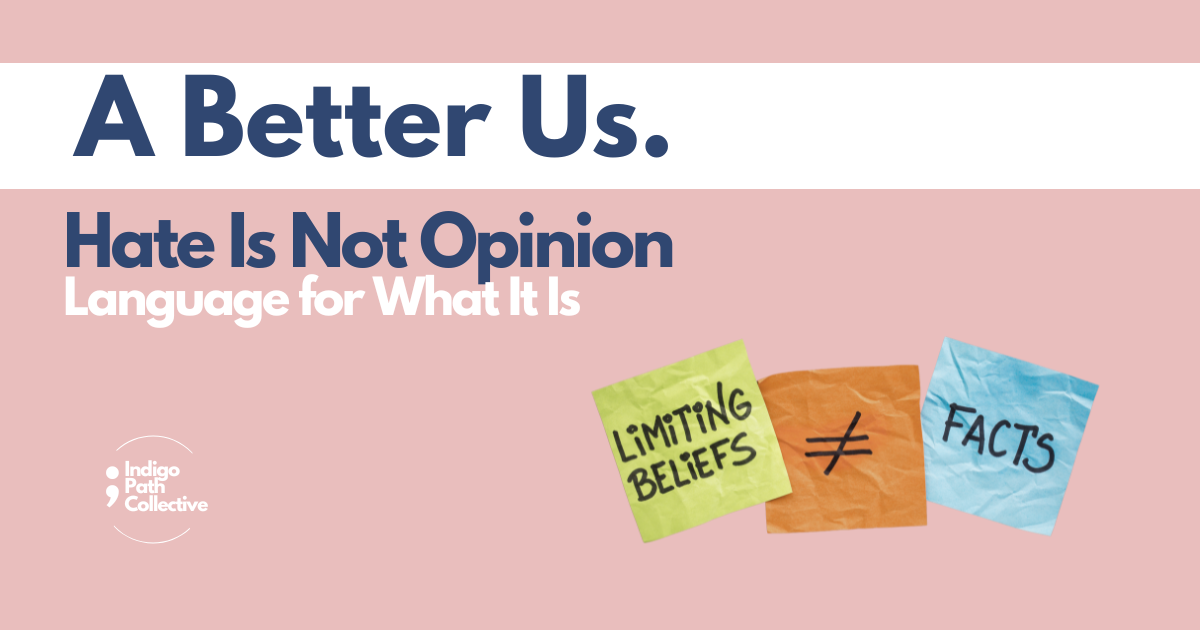
Hate Is Not Opinion: Language for What It Is
Hateful speech is often disguised as “opinion,” but prejudice, bigotry, and discrimination are not opinions. They harm health, fuel division, and create unsafe environments in communities, workplaces, and schools. At Indigo Path Collective in Tennessee, North Carolina, and South Carolina, we believe in naming language for what it is and building spaces where people feel safe, respected, and valued. Hate is not opinion. Language matters, and words can either heal or harm.
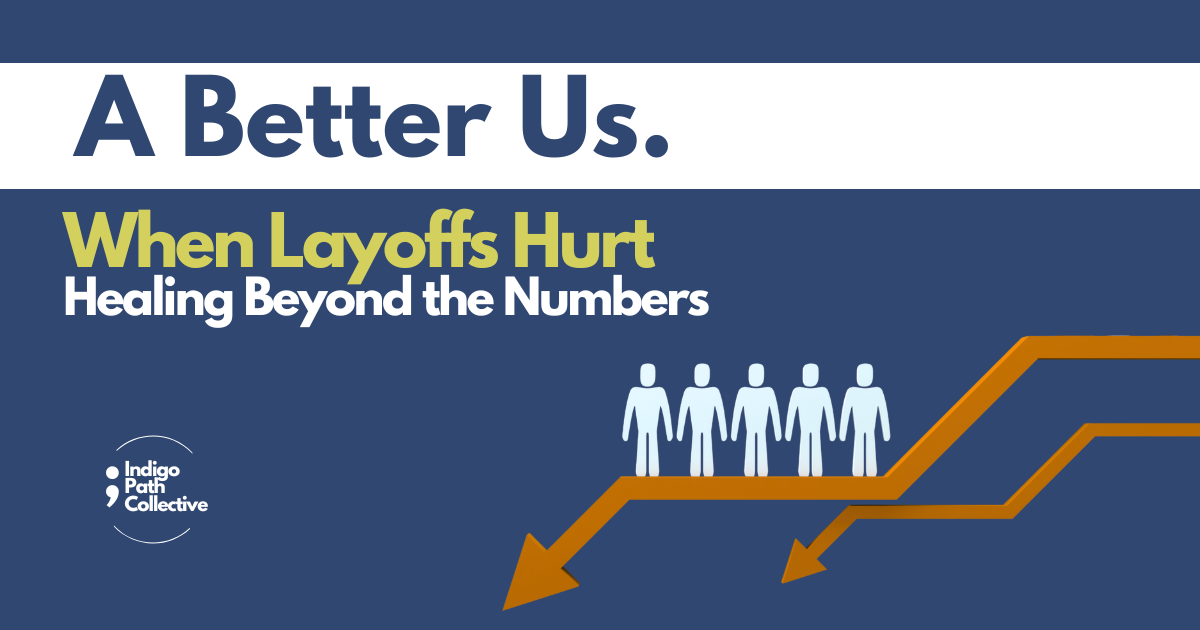
When Layoffs Hurt: Healing Beyond the Numbers
Layoffs may be common, but they are never easy. A trauma-informed approach can help people recover and protect an organization’s long-term health. The Human Relations Matrix 2.0 provides a trauma-informed employee engagement model to guide you.
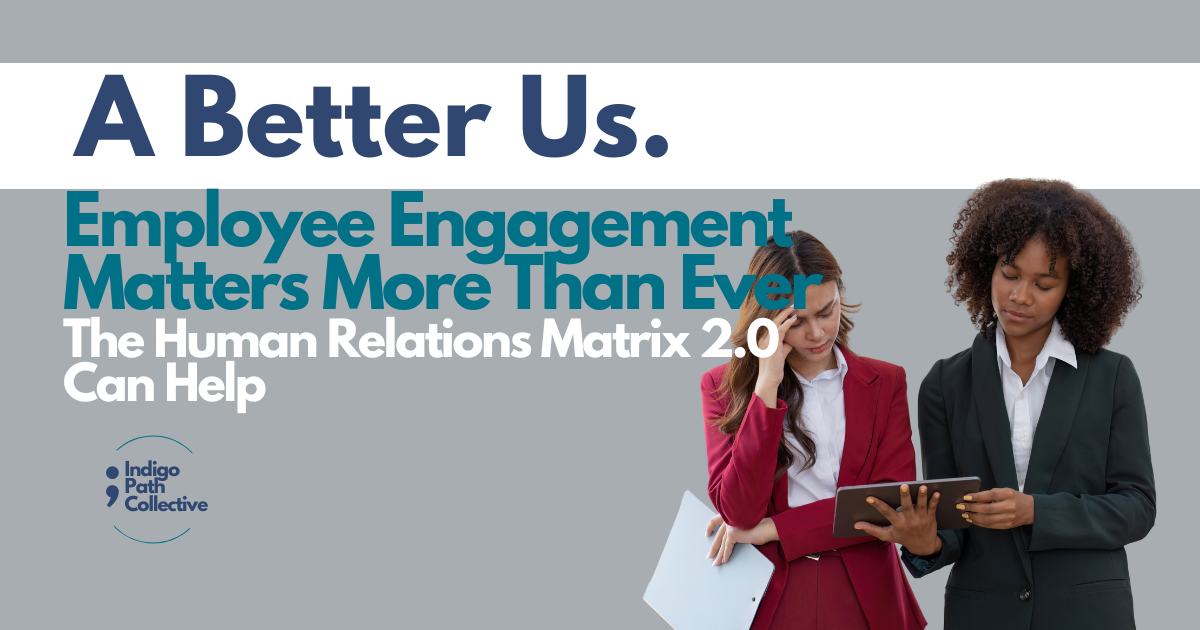
Employee Engagement Matters More Than Ever: The Human Relations Matrix 2.0 Can Help
Employee engagement is at its lowest point in a decade. Disengagement costs billions, but the Human Relations Matrix 2.0 offers a trauma-informed roadmap to rebuild trust, equity, and performance.
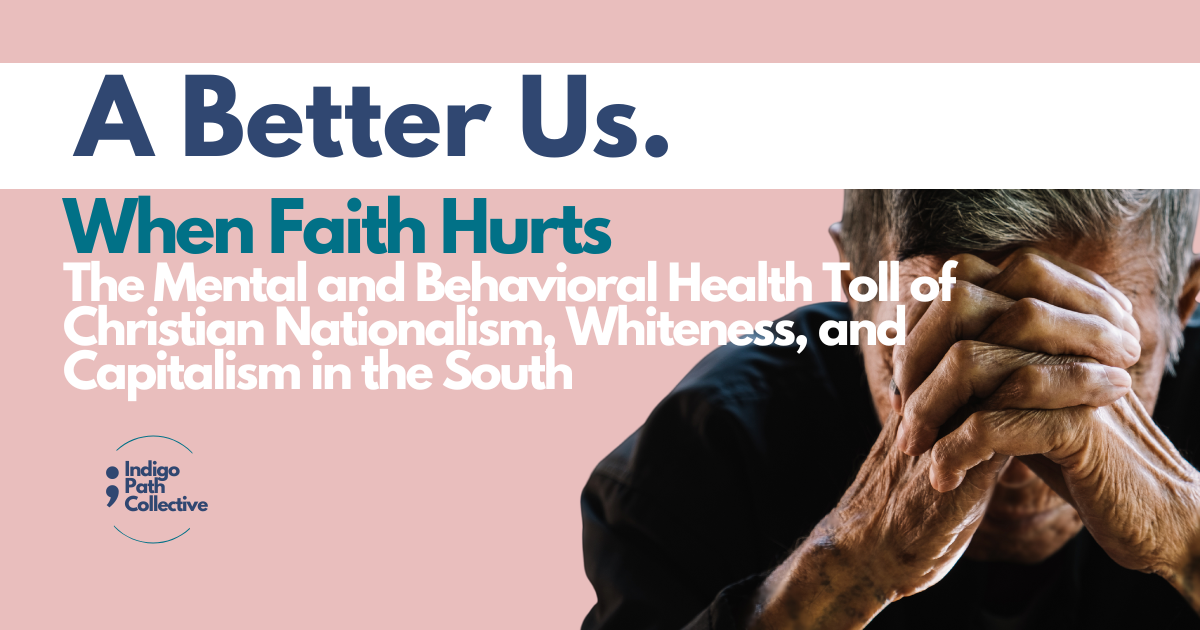
When Faith Hurts: The Mental and Behavioral Health Toll of Christian Nationalism, Whiteness, and Capitalism in the south
What happens when religion becomes a source of trauma instead of healing? In the U.S. South, where nearly 70 percent of adults identify as Christian, the overlap of Christian nationalism, white supremacy, and capitalism can create deep mental and behavioral health burdens. This blog explores how these forces intersect and how trauma-informed therapy can support people living with their impact.
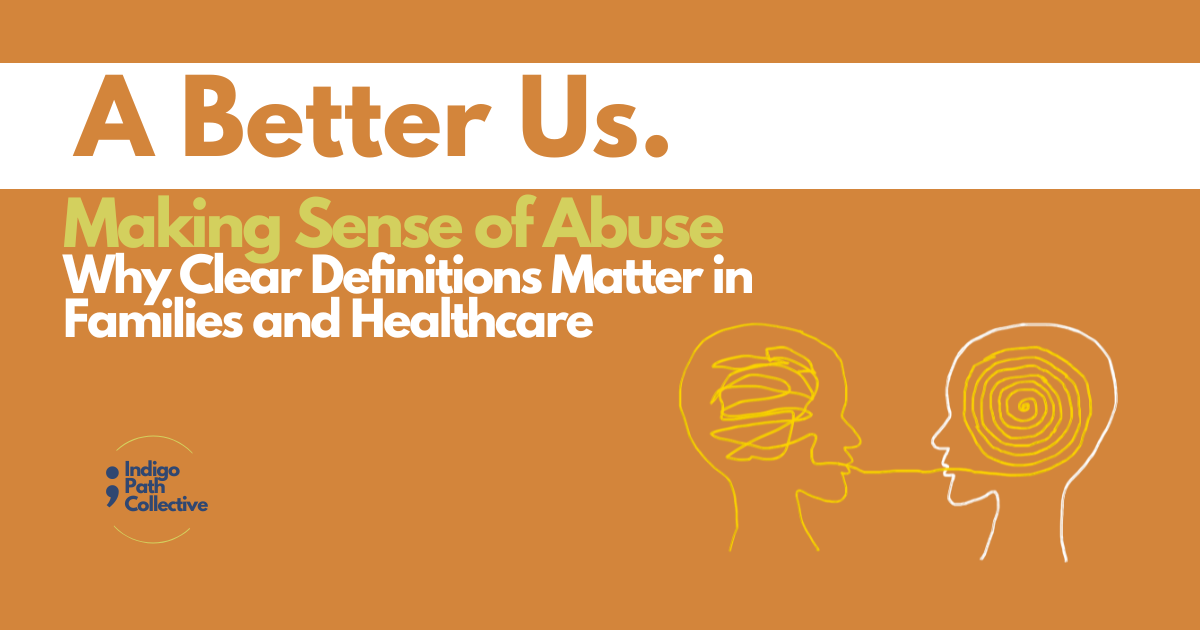
Making Sense of Abuse: Why Clear Definitions Matter in Families and Healthcare
Abuse in families is more complex than most people realize, and inconsistent language leaves many victims unseen and unsupported. This post presents a unified framework by Dr. Jeremy Henderson-Teelucksingh that defines six abuse categories and explains how power and control move within family systems, including the often-misunderstood dynamics of parent abuse.

Your Culture Isn’t Broken, It’s Avoiding the Hard Stuff
Culture isn’t broken. It’s functioning exactly as designed—protecting power, disciplining truth-tellers, and avoiding what’s hard. This blog breaks down how language, actions, and icons reveal your real culture, and how the Human Relations Matrix can help you build one that serves people, not just authority.
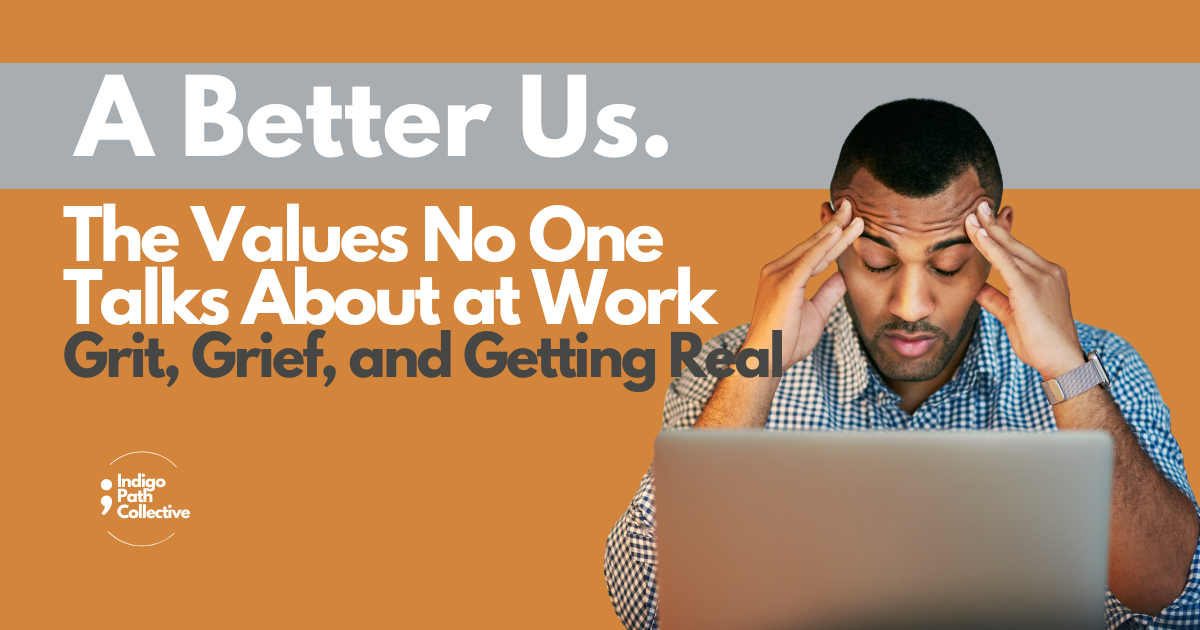
The Values No One Talks About at Work: Grit, Grief, and Getting Real
Most leadership advice avoids the hard stuff. But grief, grit, and getting real are the values people actually carry to work. This blog is for leaders who are done pretending and want to lead with clarity, courage, and values that don’t fit on a poster. Let’s talk about what it really takes to align culture with truth.
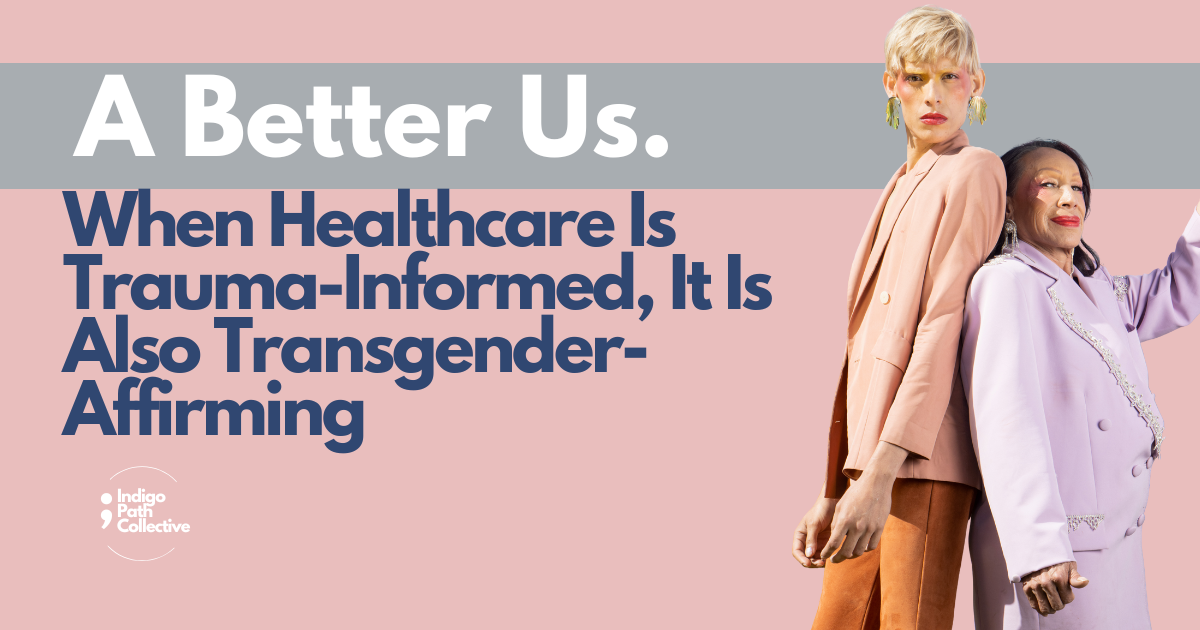
When Healthcare Is Trauma-Informed, It Is Also Transgender-Affirming
Transgender people are not distressed because of who they are, but because of the care they are denied. This blog explores why transgender-affirming healthcare is a mental health issue and how trauma-informed care must include identity, access, and dignity.

Create a Trauma-Informed Workplace: Empowering Employees for Success
A trauma-informed workplace recognizes the impact of trauma on employees’ mental and behavioral health, fostering environments built on safety, trust, and empowerment. By applying trauma-informed care principles, organizations can reduce burnout, improve employee engagement, and create a healthier, more resilient workplace culture. Integrating these principles alongside Values-Aligned Functioning helps to align organizational values with the well-being and success of all team members.

You Were Never the Problem: When Childhood Wounds Become Adult Shame
If you’ve always felt like you don’t fit in, the problem isn’t you. This blog explores how childhood experiences, especially in marginalized identities, shape self-worth, connection, and the belief that you have to earn love. Learn how to name the patterns, reclaim your truth, and start healing where it really began.

When Anger Speaks, Boundaries Answer
Anger isn’t the problem—it’s the message. Most people only discover their boundaries once they’ve been crossed. This blog explores how to identify your limits, understand the role of anger, and use your values to guide healthier, more honest relationships with others and yourself.

My So-Called F****d Up Life: Post-Traumatic Growth and the Power of Values
Post-traumatic growth doesn’t mean the trauma is over. It means you’ve found your footing inside it.
It’s not about erasing pain or pretending it didn’t happen. It’s about choosing how to live now, with clarity, intention, and values that guide you forward. If your life feels messy or broken, you’re not alone. This blog is for anyone asking, What comes next?

The Unseen Weight: When Waiting Becomes Wounding
What happens when “wait” becomes “weight”? For people living with chronic illness, obesity, or medical trauma, the psychological load often builds in silence. This post explores how emotional pain accumulates—and what healing might begin to look like.

Find Your Guiding Light: Let Values-AF Lead You Through the Fog
Fog isn’t just confusion—it’s Fear, Obligation, and Guilt.
If you're feeling lost, heavy, or unsure in this moment, you’re not alone. But you don’t need a perfect plan—you need a compass. Values-AF helps you cut through the fog, reconnect with what matters most, and move with clarity, even when the world around you feels like it’s falling apart. This is your moment to lead—not with perfection, but with purpose.

Taking Control of Fear: DEI Commitment in Counseling, Coaching, and Consulting
Fear Without Action Is Surrender.
We can’t afford to stay paralyzed by fear while oppression continues to flourish. Words are easy. Action is costly. It’s time to turn anxiety into advocacy, put our reputations on the line, and financially support those fighting for justice. But be mindful — not all organizations are perfect. Choose your allies wisely, and don’t let performative allyship take the place of real, impactful work. The choice to act, even when afraid, is the ultimate reclaiming of power.

Use Values AF to Build a Career That Truly Fits
Career success isn’t just about titles, salaries, or even opportunities—it’s about who you are, what you stand for, and whether your work allows you to express that fully. Before chasing the next promotion or job, take a step back and ask: Does this path align with my core values?
Through Values-Aligned Functioning (Values AF), you can gain clarity on what truly drives you, align your career choices with your leadership identity, and step into opportunities with confidence. Whether you’re seeking a leadership role, transitioning to a new company, or navigating career uncertainty, your values should be your guide—not just the job market.
Want to make your next move the right move? Read more to learn how Values AF can help you build a career that truly fits.

Unlock Your True Leadership Potential: Align Your Values to Drive Impact and Inspire Success
As a leader, you’ve likely encountered conflicting advice about what makes an effective leader. One common piece of 'conventional wisdom' is the belief that body language is the key to leadership success. However, true leadership comes from within. By aligning your actions with your core values, you can unlock your true leadership potential. Leading authentically fosters trust, drives impact, and inspires success within your team. Our Values Aligned Functioning (Values AF) program guides you through this transformative journey, helping you lead with purpose and clarity.

Passion for Wellness Everywhere: The Vision Behind Indigo Path Collective's Holistic Approach
At Indigo Path Collective, our vision of wellness everywhere stems from the founder’s lifelong passion for supporting individuals and organizations in achieving holistic well-being. From clinical mental health counseling to leadership coaching and corporate consulting, we are dedicated to fostering wellness in every aspect of life—at home, at work, and in our communities. Guided by a commitment to diversity, equity, and inclusion, we help individuals thrive by aligning personal values with professional goals and creating environments that promote growth, inclusivity, and resilience. Together, we can create lasting change, making wellness not just a goal but a reality for all.

You are going to want a dbh for that!
As healthcare moves toward integrated care, Doctors of Behavioral Health (DBHs) are critical to improving patient outcomes, reducing costs, and enhancing the overall care experience. Trained to address both physical and behavioral health needs, DBHs offer a holistic approach that improves health outcomes, reduces provider burnout, and bridges gaps in access to care—especially for underserved populations. By leveraging frameworks like the Human Relations Matrix, healthcare organizations can align their teams, streamline decision-making, and create more efficient, collaborative care environments. In an era where whole-person health is the future, the time to invest in integrated care models with DBHs is now.
Start your journey
Request an appointment below to schedule a free, 15-minute counseling consultation.
